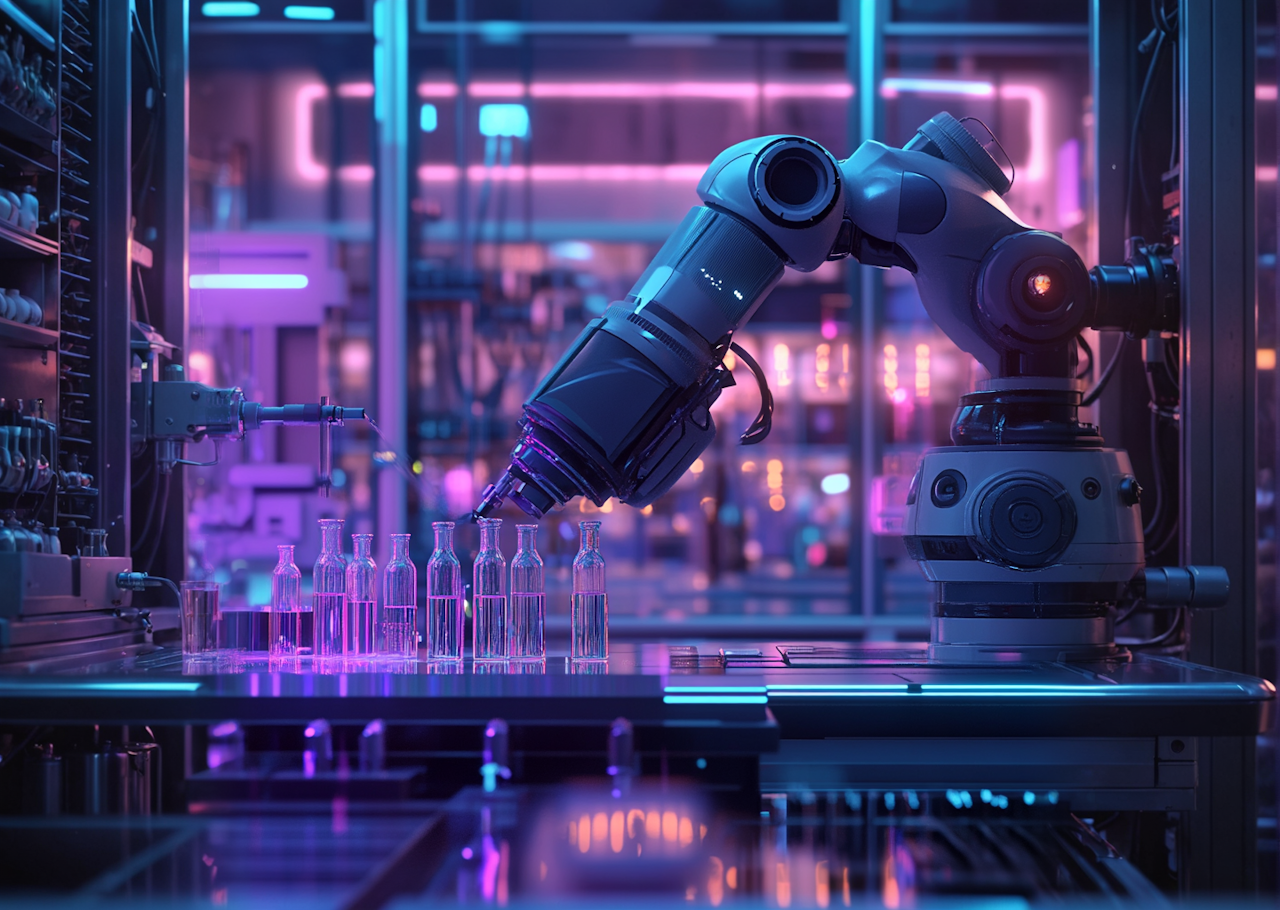In the bustling, white-coated world of chemical laboratories, a silent revolution is underway, driven not by human hands, but by the calculated precision of AI-driven mobile robots. At the heart of this transformation are researchers from the University of Liverpool, who are pioneering the integration of these autonomous systems into the complex realm of chemical synthesis. This cutting-edge technology promises to reshape the landscape of chemical research, delivering unprecedented efficiency and accuracy.
The integration of AI-driven mobile robots into laboratories marks a significant technological leap. These intelligent machines are designed to autonomously operate equipment and conduct experiments, effectively transforming traditional laboratories into futuristic spaces of innovation. According to a recent Nature article, these robots leverage AI to make data-driven decisions, accelerating the pace of chemical synthesis by optimising experimental processes. The adoption of such technology is not merely about replacing human effort but enhancing it, as these robots can conduct complex analyses and syntheses with a precision that is often challenging to achieve manually.
The advantages of these AI-driven systems over traditional methods are particularly noteworthy. In a comparative analysis, AI robots have been shown to outperform human researchers in both efficiency and accuracy. As detailed in a report on AZoRobotics, these robots significantly reduce the time and cost associated with chemical research. Their ability to conduct experiments around the clock, without the need for rest, allows for continuous exploration and discovery, which is a game-changer for the industry. This shift towards automation not only streamlines operations but also opens doors to new possibilities in chemical synthesis that were previously constrained by human limitations.
Key players in this technological evolution include the University of Liverpool, whose pioneering efforts have positioned them at the forefront of AI and robotics innovation in chemistry. The university’s collaboration with technology companies and other academic institutions has been instrumental in advancing these AI systems. According to ChemEurope, these partnerships are crucial in harnessing the full potential of AI-driven mobile robots, enabling the development of more sophisticated and capable systems. Such collaborations highlight the importance of interdisciplinary approaches in driving technological advancements.
Looking ahead, the potential applications of AI-driven robotics extend far beyond current capabilities, promising to revolutionise various fields of science and industry. As noted in a recent report on Robotics, ongoing research and development efforts are focused on enhancing the versatility and functionality of these robots. This could lead to breakthroughs in areas such as pharmaceuticals, where the demand for rapid and precise chemical synthesis is ever-growing. The future of AI-driven robotics in chemical synthesis looks promising, with the potential to not only advance scientific research but also make it more accessible and efficient.
As AI-driven mobile robots continue to blaze a trail in chemical synthesis, they herald a new era of scientific exploration and innovation. These autonomous systems are not just tools, but transformative agents that promise to redefine the boundaries of research. With ongoing advancements and collaborations, the future of chemical synthesis—and indeed, science as a whole—seems poised for exciting developments. The age of AI in chemistry is here, and it is set to elevate the field to unprecedented heights.
In Other News…
AI-Generated Alan Turing Portrait Fetches $1.3 Million at Auction
An AI-created portrait of computing pioneer Alan Turing has sold for a record-breaking $1.3 million, highlighting the growing intersection of artificial intelligence and the art world.
Read More
Australian AI Start-Up Founder Faces U.S. Charges Over Alleged Financial Misrepresentation
The founder of an Australian AI start-up has been accused in the United States of falsifying financial records, raising concerns about transparency within the tech industry.
Read More
Perplexity AI Launched Real-Time Election Tracker Amid Industry Hesitation
While many AI companies exercised caution regarding election data, Perplexity AI introduced a real-time election information hub, which aimed to provide voters with up-to-date insights.
Read More


